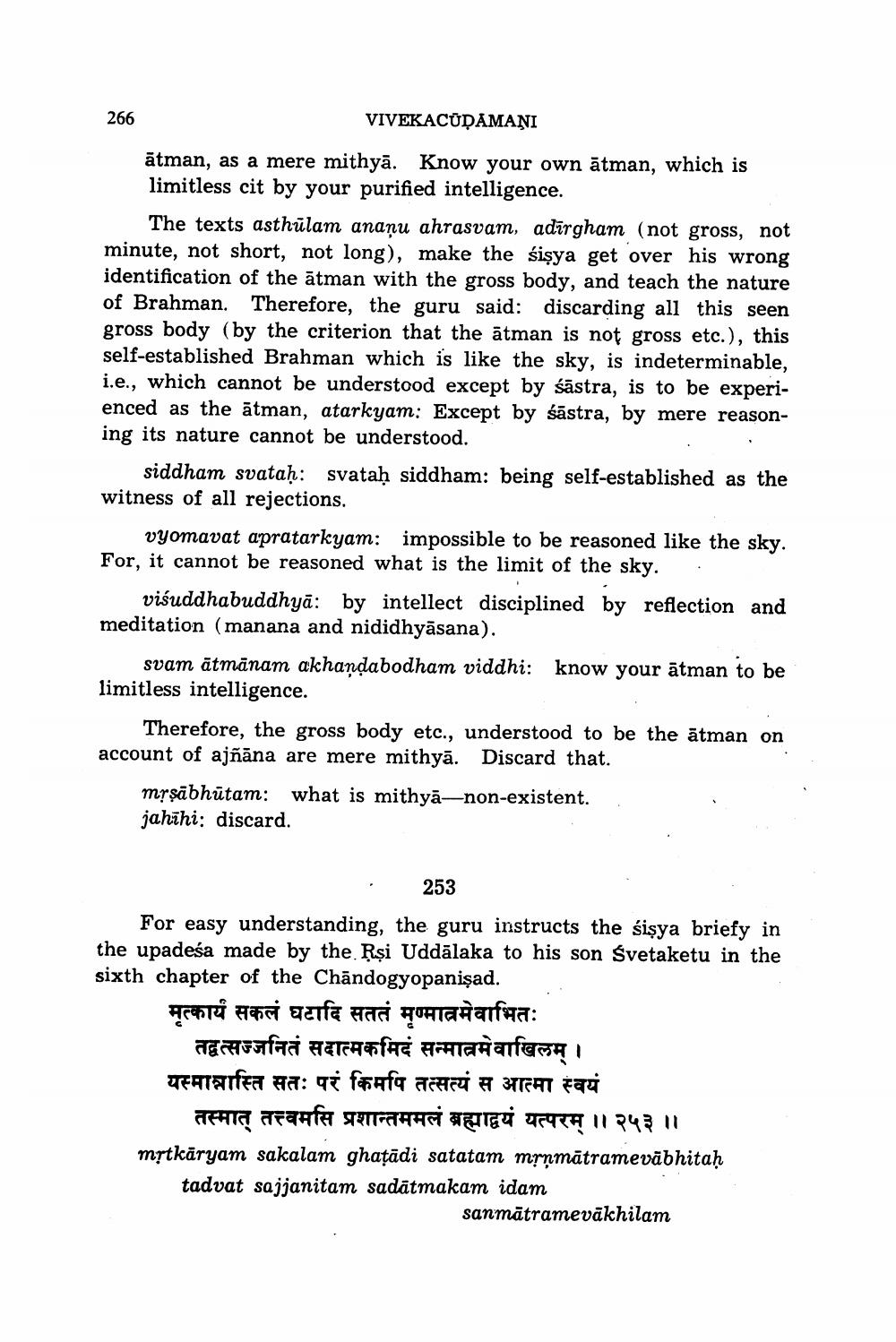________________
266
VIVEKACŪDAMAŅI
ātman, as a mere mithyā. Know your own ātman, which is limitless cit by your purified intelligence.
The texts asthūlam anaņu ahrasvam, adirgham (not gross, not minute, not short, not long), make the sisya get over his wrong identification of the ātman with the gross body, and teach the nature of Brahman. Therefore, the guru said: discarding all this seen gross body (by the criterion that the ātman is not gross etc.), this self-established Brahman which is like the sky, is indeterminable, i.e., which cannot be understood except by śāstra, is to be experienced as the ātman, atarkyam: Except by śāstra, by mere reasoning its nature cannot be understood.
siddham svataḥ: svataḥ siddham: being self-established as the witness of all rejections.
vyomavat apratarkyam: impossible to be reasoned like the sky. For, it cannot be reasoned what is the limit of the sky. .
viếuddhabuddhyā: by intellect disciplined by reflection and meditation (manana and nididhyāsana).
svam ātmānam akhandabodham viddhi: know your ātman to be limitless intelligence.
Therefore, the gross body etc., understood to be the ātman on account of ajñāna are mere mithyā. Discard that.
měsābhūtam: what is mithya-non-existent. jahīni; discard.
253
For easy understanding, the guru instructs the sişya briefy in the upadeśa made by the Rși Uddālaka to his son svetaketu in the sixth chapter of the Chāndogyopanişad.
मृत्कार्य सकलं घटादि सततं मृण्मानमेवाभितः
तद्वत्सज्जनितं सदात्मकमिदं सन्मानमेवाखिलम् । यस्मानास्ति सतः परं किमपि तत्सत्यं स आत्मा स्वयं
तस्मात् तत्वमसि प्रशान्तममलं ब्रह्माद्वयं यत्परम् ॥ २५३ ॥ mítkāryam sakalam ghatādi satatam mıņmātramevābhitaḥ tadvat sajjanitam sadātmakam idam
sanmātramevākhilam




